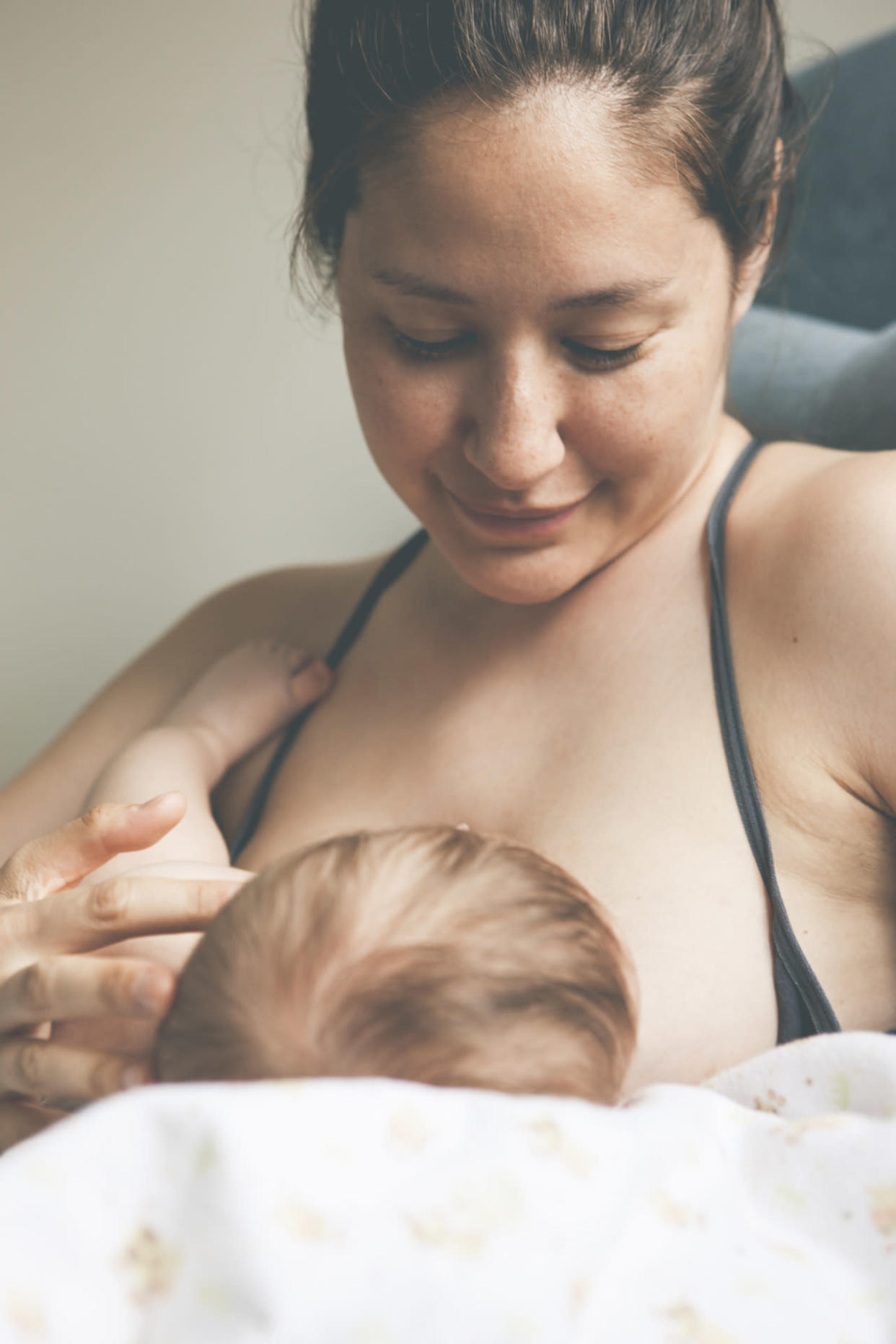Study finds pressure to breastfeed can lead to depression in new moms

We’ve heard the line a million times: Breast is best. But that kind of pressure can take its toll on a new mom who is already struggling with crazy hormones, no sleep and a total life transformation – not to mention a new baby!
In fact, a recent study found that moms who are pressured to breastfeed are more likely to suffer from post-natal depression.
The study was conducted by the Murdoch Children’s Institute in Australia and looked at 1,500 women, once in the days following birth and then again when their babies were three and six months old.
ALSO SEE: Toddler breastfeeding her doll called out as ‘nastiest sh–’ on Facebook
“The study found that women who had depressive symptoms at three months after birth had much lower breastfeeding rates at six months, compared to those women who hadn’t reported depressive symptoms at the three month mark,” claims MummyPages.
This lead researchers to conclude that women who find it difficult to breastfeed are more likely to develop post-natal depression and that women with depression have less success breastfeeding.
“We found significantly lower rates of breastfeeding at four, five and six months postpartum in women who had depressive symptoms at three months,” said researcher, Dr. Hannah Woolhouse.
ALSO SEE: This clever new app is tackling one of the biggest challenges of breastfeeding
That said, it’s difficult to know whether it’s the depression causing the inability to breastfeed or vice versa.
“It could be that women experiencing depression is leading them to stop breastfeeding earlier, or it could be difficulty with breastfeeding is contributing to the beginning of post-natal depression,” she said.
Regardless, the findings show that there’s definitely a link between depression and the inability to breastfeed.
“Women need to be compassionately supported in their infant-feeding choices whatever they are because the pressure on women around breastfeeding can potentially worsen their mental health,” said Woolhouse. “The end goal should be women feeling confident and empowered.”
What are your thoughts on the findings of this study? Let us know by tweeting to @YahooStyleCA.


